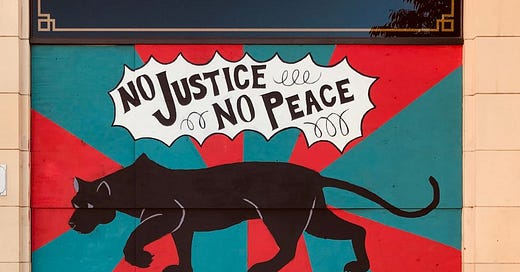Black women as conveyors of radical religious traditions is an important and often overlooked topic. However, it is both the religious and ethical dimensions of Black women revolutionaries that we believe provide a more robust understanding of the various approaches to religion used by African descended people.
Black Revolutionary Women
The revolutionary women of the Black Panther Party is one such example. How did those women understand the value of their humanity under the rubric of a counter-narrative to concepts of the Black subjective self?
When historical women, such as Harriet Tubman, freed over 300 people as part of the counter-narrtive to understanding "Black" as sub-human, her actions were both radical and revolutionary.
The women of the Black Panther Party may not be seen as such, but when we consider the 10-part goals or agenda of the Black Panther Party, is is difficult not to see them as operating through a situational ethics, or an ethical stance that is cultivated in response to a particular situation (racialized violence in this case).
Spilling Tea - Misogynoir at Home
In spilling the tea about the Black community, misogynoir must be eradicated everywhere - including within our homes. If misogynoir was operating within the ranks of their comrades, how did women like Katheen Clever, Angela Davis and Diane Nash move the needle to insist that Black self identity was relevant, not only for the men of the community, but for all of the Black community?
How did published works such as Soul on Ice resonate for women who were gathering the courage to speak against misogynistic trends? Then, for the religious scholars, how can we correlate this with sacred texts which undermine the whole community by devaluing women?
Religious Misogyny and Misogynoir
Where are women treated as less than human in the texts you've read in your own traditions? Here is a link to the Women of the Black Panther Party which we hope you will enjoy. Our work is dependent on readers such as you.
Women of the Black Panthers






